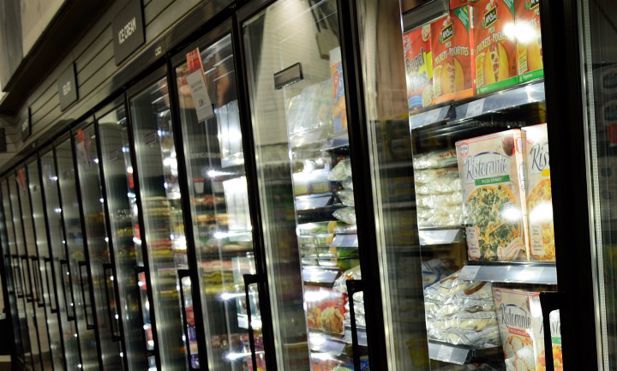University of Birmingham experts are joining the Government of Telangana State to create a ‘hot spot’ for sustainable cooling innovation – to accelerate the deployment of energy-efficient refrigeration for food and vaccine supply chains across India.
The Centre of Excellence in Sustainable Cooling and Cold-Chain will conduct state-of-the-art applied research in food and vaccine distribution, supporting the roll-out of affordable, energy resilient, low emission cold-chain systems in India.
Connecting British and Indian experts with investors, agri-food businesses, farmer co-operatives, and energy or logistics providers, the Centre will provide capacity building and training. An innovation hub and technology testing/demonstration facility is planned.
The partnership builds on the Africa Centre of Excellence for Sustainable Cooling and Cold Chain (ACES) and will be led by University of Birmingham and UN Environment Programme’s United for Efficiency (UNEP U4E) with technical assistance funding from the UK Government’s Department for Environment, Food & Rural Affairs (Defra).
ACES’ ‘hub-and-spoke’ design will be adapted for operations in India – enhancing research and development capacity through a network of Specialized Outreach and Knowledge Establishments (SPOKEs) deploying technologies and innovative business models in rural communities.
Professor Robin Mason, Pro-Vice-Chancellor (International) at the University of Birmingham and Jayesh Ranjan IAS, Principal Secretary to Government & Commissioner Industrial Promotion, Industries & Commerce Department Government of Telangana signed a Memorandum of Understanding today in an online ceremony.
The ceremony was also attended by Lord Karan Bilimoria, Chancellor at the University of Birmingham and Rajender Reddy G, Director Logistics, Nodal Officer PM Gatishakti, Industries & Commerce Department Government of Telangana and Dipankar Chakraborty, University of Birmingham India Institute Director.
Jayesh Ranjan said: “Telangana and Hyderabad are well-connected at the heart of India and our businesses rely on efficient cold-chain logistics. The Centre of Excellence will connect Indian and British experts, investors and businesses to support the achievement of affordable, energy resilient, low emission cold-chain systems in India. This facility will provide better logistics and sustainable solutions for the produce get to market quickly and efficiently. I assure full support from the Government of Telangana in making this happen.”
The University of Birmingham will provide research expertise and involve UK technology experts and industry in establishing the Centre of Excellence. The State Government of Telangana plans to provide land and infrastructure, staff and resources, as well as a financial contribution towards establishing, operating and maintaining the Centre.
Toby Peters, Professor of Cold Economy at the University of Birmingham, said: “Working with Telangana will allow us to really expand the work across sustainable cold-chains for food and vaccines, localising solutions to the environment in Telangana with the skills and business models needed to l help accelerate the transition to sustainable cooling – regionally and nationally.”
The partnership aims to set up a Solutions Development Laboratory, Solutions Demonstration Centre, model pack-house and Community Cooling Hub. The SPOKEs will deliver upskilling and training programmes for farmers and local agri-businesses, agri-start-ups and entrepreneurs, equipment technicians and researchers.
Steve Cowperthwaite, Head of International Stratospheric Ozone and Fluorinated Greenhouse Gases, Defra, commented: “Building on the ground-breaking work in Africa we are delivering, this partnership will support real opportunities for change that can boost climate friendly, sustainable cold chains in India – offering real hope for progress in reducing food waste while simultaneously cutting emissions.”
UK Technical Collaboration will be led by the Centre of Sustainable Cooling (University of Birmingham) supported by its partners – Cranfield, London South Bank and Heriot-Watt Universities and UN U4E.
Andrew Fleming, British Deputy High Commissioner to Andhra Pradesh & Telangana said: “I am delighted by the pace the establishment of this Centre of Excellence is coming to fruition and excited for the positive benefits it stands to bring both the agriculture and health sectors. This will benefit both Telugu speaking states and the wider nation as some of the sharpest innovators from UK and India are connected in an area that will improve people’s lives in the same way as a sister facility in Kigali, Rwanda has begun to do across the African continent.”


















